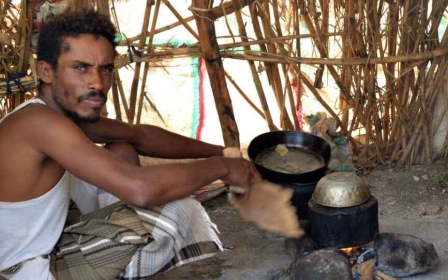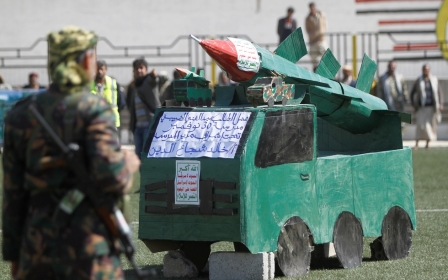Yemen facing famine and diphtheria despite lifting of Saudi blockade
Three-quarters of Yemen's 29 million people are facing starvation or rely on humanitarian aid to survive, the UN said on Tuesday, as health organisations warned of a menacing new outbreak of diphtheria which had already killed dozens of people.
The UN humanitarian affairs office, OCHA, said 8.4 million people were at risk of famine, up from 6.8 million last year. A total of 22.2 million people, or 76 percent of the population, were dependent on some form of assistance, an increase of 1.5 million people over the past six months.
The warning came as the World Health Organisation reported a diphtheria outbreak was "spreading quickly", with 678 cases and 48 associated deaths in four months. A vaccination campaign was already under way, the organisation said.
Cholera has already killed thousands of Yemenis and infected close to a million people, the majority of whom are children, in what has been described as the fastest spreading and largest outbreak in modern history.
The WHO reported in October 815,000 suspected cases of the disease and 2,156 deaths in Yemen. About 4,000 suspected cases were being reported daily, more than half of which were among children under 18. Children under five account for a quarter of all cases.
The Saudi-led coalition in Yemen has authorised the port of Hodeidah to remain open until Friday, the UN said, but called for the date to be extended to permit continued offloading of life-saving supplies.
The United Nations' efforts to address what it has described as the world's worst humanitarian crisis have been hampered by a crippling blockade of rebel-held ports by the Saudi-led coalition that intervened in support of the beleaguered government in March 2015.
The blockade was tightened following a missile launch toward Riyadh by the Houthi rebels in November.
The programme's Yemen director, Stephen Anderson, said on Tuesday: "If the ports are restricted again we could face a catastrophic loss of life if we can't get supplies to people," he told the Thomson Reuters Foundation by phone from Hodeidah on Monday.
Yemenis are facing "an extremely bleak outlook", with continued conflict, high fuel and food prices and diseases such as the cholera outbreak and the spread of diphtheria, Anderson added.
Stay informed with MEE's newsletters
Sign up to get the latest alerts, insights and analysis, starting with Turkey Unpacked
Middle East Eye delivers independent and unrivalled coverage and analysis of the Middle East, North Africa and beyond. To learn more about republishing this content and the associated fees, please fill out this form. More about MEE can be found here.




